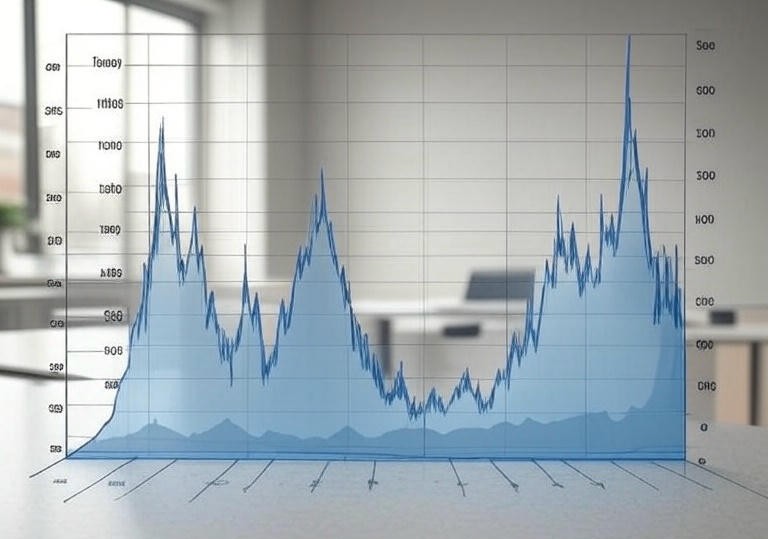The Russia-Ukraine war has been a major global crisis since it started in February 2022. The conflict has not only affected Europe but also sent shockwaves across the world economy. With recent escalations in the war global markets are once again facing uncertainty and India is no exception. The Indian stock market which is sensitive to international events is reacting to this tension with volatility and investor anxiety.

How Global Tensions Affect Indian Markets
The Indian stock market is deeply connected with global developments. When there is a major geopolitical issue foreign investors often become cautious. This leads to:
- FIIs (Foreign Institutional Investors) pulling out funds
- Rupee depreciation
- Rise in crude oil prices
- Higher inflation fears
The Russia-Ukraine war especially when it intensifies triggers all of the above.
Crude Oil Prices and India’s Dependence
India imports over 80% of its crude oil needs. Whenever there’s tension in Eastern Europe crude oil prices tend to rise due to supply fears.
Russia is one of the world’s largest oil and gas exporters. If its supply chain is disrupted due to war sanctions or blocked trade routes oil prices spike globally. This puts pressure on India in two ways:
- Higher import bill
- Rising petrol and diesel prices
This affects the Indian economy and hits the pockets of common citizens. Transport, manufacturing and aviation sectors face rising costs which reflects in stock prices of companies in these industries.
FII Withdrawal and Market Volatility
Foreign investors play a big role in Indian markets. When global uncertainty rises FIIs often sell their Indian holdings and move to safer assets like gold or the U.S. dollar. This causes:
- Nifty and Sensex to fall
- Volatility Index (VIX) to rise
- Rupee to weaken against the dollar
This pattern has been seen multiple times since the war began. Every time there’s news of escalation, FIIs pull out and the market falls sharply.
Sector-Wise Impact on Indian Stocks
Let’s understand how different sectors in the Indian stock market react to the Russia-Ukraine war situation:
1. Oil & Gas Sector
- Oil marketing companies like HPCL, BPCL and IOC face pressure due to rising crude prices.
- However upstream companies like ONGC may benefit from higher oil prices.
2. Aviation
- Airlines like IndiGo and SpiceJet suffer due to high jet fuel costs.
3. Auto Sector
- Auto companies depend on global supply chains. Chip shortages or metal supply disruptions can delay production and raise costs.
4. FMCG
- Fast-moving consumer goods may also face higher input costs reducing margins.
5. Defence and Infrastructure
- These sectors may receive attention from the government for increased spending especially in light of the war and India’s own strategic priorities.
6. IT and Pharma
- These sectors are relatively insulated and may be considered safe bets during global turmoil.
India’s Trade with Russia and Ukraine
India imports fertilizers, crude oil and defense equipment from Russia. Ukraine was also a major supplier of sunflower oil and other agricultural items. Disruption in trade leads to:
- Higher food inflation
- Difficulty in sourcing critical materials
- Supply chain bottlenecks
This impacts both the economy and the market, especially sectors like agriculture, fertilizers and food processing.
How Retail Investors Should React
Retail investors often panic during geopolitical crises. But history shows that markets recover after a few months once uncertainty settles. Here are some tips for Indian investors:
- Do Not Panic Sell – Avoid selling stocks in fear. Think long-term.
- Diversify Investments – Spread your investments across equity, debt, gold and international funds.
- Keep an Emergency Fund – Always have 6–12 months of expenses saved separately.
- Invest in Quality Stocks – Stick with companies that have strong fundamentals and less international dependency.
- Monitor Global News – Stay informed but don’t react emotionally to every headline.
Historical Trends: How Markets Recovered
In past global conflicts like the Gulf War 9/11 attacks or the 2008 crisis markets initially fell but recovered later. The same trend has been seen after the Russia-Ukraine war broke out in 2022. Though there were sharp corrections Indian markets bounced back as global investors regained confidence.
This indicates that while short-term volatility is expected long-term investors usually benefit by staying invested.
The Bigger Picture
The Russia-Ukraine conflict is part of a larger global realignment. Countries are reassessing their economic ties, energy security and military strategies. For India this is both a challenge and an opportunity.
India has already increased oil imports from Russia at discounted rates and has explored new trade routes. If managed well India could emerge stronger by building strategic reserves strengthening its defence industry and reducing supply chain dependence.
Conclusion
The escalation of the Russia-Ukraine war has clear impacts on the Indian stock market rising crude prices, falling stock indices and foreign investor pullout are just a few effects. But long-term investors who stay calm and make smart diversified decisions will likely see gains once the global situation stabilizes.
Geopolitical events like this remind us that investing is not just about profits but also about risk management and patience.
